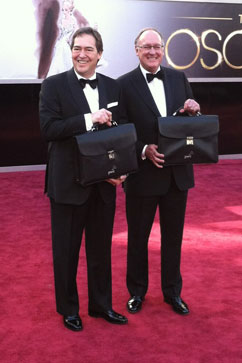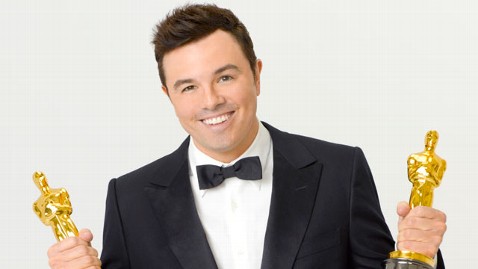ROME (Reuters) - Italy's stunned political parties searched for a way forward on Tuesday after an inconclusive election gave none of them a parliamentary majority and threatened prolonged instability and a renewal of the European financial crisis.
The results, notably the dramatic surge of the anti-establishment 5-Star Movement of comic Beppe Grillo, left the center-left bloc with a majority in the lower house but without the numbers to control the upper chamber, the Senate.
Financial markets fell sharply at the prospect of a stalemate that reawakened memories of the crisis that pushed Italy's borrowing costs toward unsustainably high levels and brought the euro zone to the brink of collapse in 2011.
"The winner is: Ingovernability," ran the headline in Rome newspaper Il Messaggero, reflecting the deadlock the country will have to confront in the next few weeks as sworn enemies are forced to work together to form a government.
Ratings agency Standard & Poor's said on Tuesday that policy choices of the next Italian government would be crucial for the country's creditworthiness, underlining the need for a coalition that can agree on new reforms.
Pier Luigi Bersani, head of the center-left Democratic Party (PD), has the difficult task of trying to agree a "grand coalition" with former prime minister Silvio Berlusconi, the man he blames for ruining Italy, or striking a deal with Grillo, a completely unknown quantity in conventional politics.
The alternative is new elections either immediately or within a few months, although both Berlusconi and Bersani have indicated that they want to avoid a return to the polls if possible: "Italy cannot be ungoverned and we have to reflect," Berlusconi said in an interview on his own television station.
For his part, Grillo, whose movement won the most votes of any single party, has indicated that he believes the next government will last no more than six months.
"They won't be able to govern," he told reporters on Tuesday. "Whether I'm there or not, they won't be able govern."
He said he would work with anyone who supported his policy proposals, which range from anti-corruption measures to green-tinted energy measures but rejected suggestions of entering a formal coalition: "It's not time to talk of alliances... the system has already fallen," he said.
The election, a massive rejection of the austerity policies applied by Prime Minister Mario Monti with the backing of international leaders from U.S. President Barack Obama to German Chancellor Angela Merkel, caused consternation across Europe.
German Finance Minister Wolfgang Schaeuble put a brave face on it, saying "that's democracy".
Spanish Foreign Minister Jose Manuel Garcia-Margallo was more pessimistic.
"This is a jump to nowhere that does not bode well either for Italy or Europe," he said.
A long recession and growing disillusionment with mainstream parties and tax-raising austerity fed a bitter public mood and contributed to the massive rejection of Monti, whose centrist coalition was relegated to the sidelines.
Projections by the Italian center for Electoral Studies showed that the center-left will have 121 seats in the Senate, against 117 for the center-right alliance of Berlusconi's PDL and the regionalist Northern League. Grillo would take 54.
That leaves no party with the majority in a chamber which a government must control to pass legislation.
"THE BELL IS RINGING"
On a visit to Germany, President Giorgio Napolitano said he would not comment until the parties had consulted with each other and Bersani called on Berlusconi and Grillo to "assume their responsibilities" to ensure Italy could have a government.
He warned that the election showed austerity policies alone were no answer to the economic crisis and said the result carried implications beyond Italy.
"The bell is ringing for Europe as well," he said in his first public comments since the election.
He said he would present a limited number of reform proposals to parliament, focusing on jobs, institutional reform and European policy.
However forming an alliance may be long and difficult and could test the sometimes fragile internal unity of the mainstream parties.
"The idea of a majority without Grillo is unthinkable. I don't know if anyone in the PD is considering it but I'm against it," said Matteo Orfini, a member of Bersani's PD secretariat.
"The idea of a PD-PDL government, even if it's backed by Monti, doesn't make any sense," he said.
For his part, Berlusconi won a boost when his Northern League ally Roberto Maroni won the election to become regional president of Lombardy, Italy's economic heartland and one of the richest and most productive areas of Europe.
For Italian business, with an illustrious history of export success, the election result brought dismay that there would be no quick change to what they see as a regulatory sclerosis that has kept the economy virtually stagnant for a decade.
"This is probably the worst possible scenario," said Francesco Divella, whose family began selling pasta under its eponymous brand in 1890 in the southern region of Puglia.
Berlusconi's campaign, mixing sweeping tax cut pledges with relentless attacks on Monti and Merkel, echoed many of the themes pushed by Grillo and underlined the increasingly angry mood of the Italian electorate.
But even if the next government turns away from the tax hikes and spending cuts brought in by Monti, it will struggle to revive an economy that has scarcely grown in two decades.
Monti was widely credited with tightening Italy's public finances and restoring its international credibility after the scandal-plagued Berlusconi, who is currently on trial for having sex with an under-age prostitute.
However, Monti struggled to pass the kind of structural reforms needed to improve competitiveness and lay the foundations for a return to economic growth. A weak center-left government may not find it any easier.
The view from some voters, weary of the mainstream parties, was unrepentant: "It's good," said Roger Manica, 28, a security guard in Rome, who voted for the center-left PD.
"Next time I'll vote 5-Star. I like that they are changing things, even if it means uncertainty. Uncertainty doesn't matter to me, for me what's important is a good person who gets things done," he said. "Look how well they've done."
(Additional reporting by Barry Moody, Gavin Jones, Lisa Jucca, Steven Jewkes, Steve Scherer, Catherine Hornby and Massimiliano Di Giorgio, Annika Breidthardt in Berlin. Writing by Philip Pullella and James Mackenzie; Editing by Peter Graff)




















